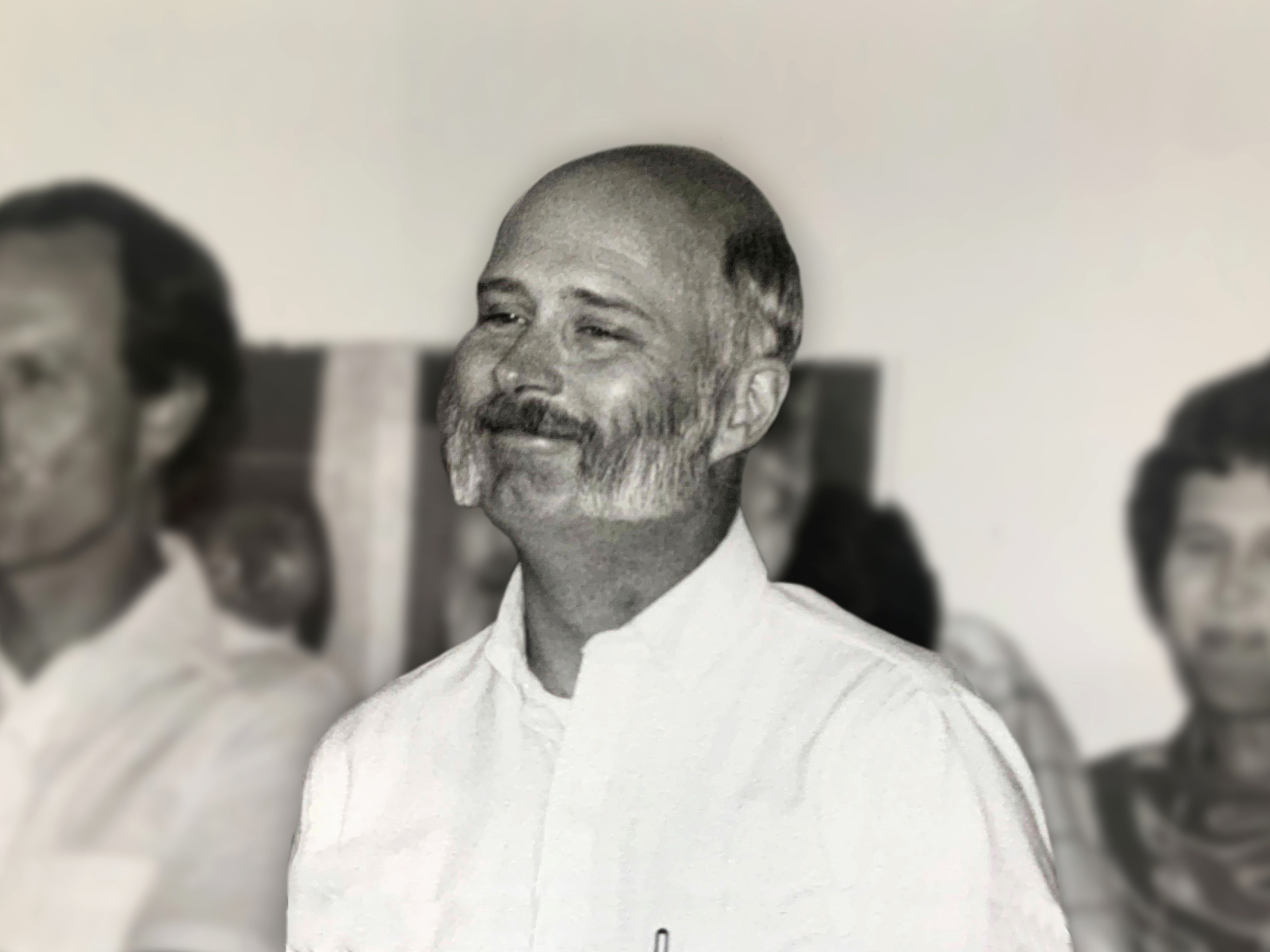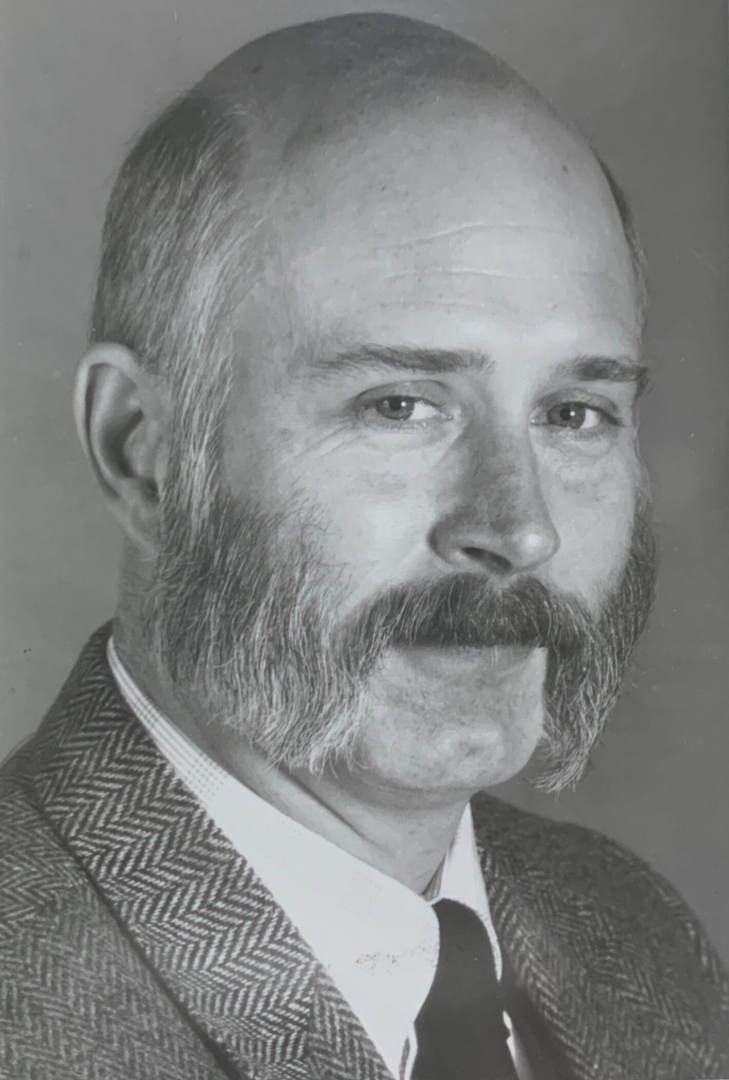Fond Farewell: Biology Professor Emeritus Richard Demaree

Professor Emeritus Richard Demaree, who taught biological sciences on campus for 34 years, passed away July 31. He was 78.
Born July 1, 1942, in Akron, Ohio, Demaree began dreaming of becoming a biology teacher in high school. He earned his BS in biology from Purdue University, where he was a national merit scholar. He then completed an MA in zoology from Indiana State University and a PhD in zoology from Colorado State University, and was awarded a National Institute of Health traineeship in parasitology.
Demaree was a leader in biological research using the electron microscope starting with the technology’s inception in the late 1960s. He enlisted in the US Army in 1969, and for three years he headed the electron microscopy branch, pathology division, of its Medical Research Nutrition Laboratory.
In 1972, the year Holt Hall opened for classes, he became a faculty member at Chico State. He was hired alongside Professor Emeritus Roger Lederer, who recalls that “we were both 30 years old, had served in the Army, and were newly minted PhDs.” Having so much in common, they fostered what would be a lifelong friendship and mutual professional respect.
“For 30 some years, Rich and I worked for the same goals—the students,” said Lederer, who eventually became dean of the College of Natural Sciences. “I can honestly say he was undoubtedly one of a very small handful of faculty across the entire campus who excelled in everything—teaching, research, and service—and did so with aplomb. He was respected by everyone.”
Some of Lederer’s fondest memories of Demaree are working together at the Eagle Lake Field Station, setting up summer courses and working with students in the field and in the lab. He’ll never forget when they experienced snow there on Fourth of July, or when one day they decided to take an old, clearly rotting sailboat out onto the lake, where it promptly sank with them in it.
“We’d work closely with the students all day with lectures and field trips and then work with them in the evening as well. We’d have discussions until midnight sometimes. Rich was always teaching,” he said. “We got to know each other well in these formal and informal sessions and became sort of in loco parentis to 20–30 students at the field station.”

In 1981, Demaree achieved a Professional Achievement Award, recognizing his excellence in research, publications, and honors for contributions to his field. In 1986, he was nominated for the Outstanding Professor Award by the California State University system. The following year, Chico State named him its Outstanding Professor for for his research and excellence in the teaching of biology and parasitology to both undergraduate and graduate students.
“Clearly Rich did his best and then some,” Lederer said. “The students loved him and one year he was chosen as the best teacher in the department in an informal survey. He certainly was that and one of the best researchers as well, sought after by both graduate and undergraduate students. I don’t remember how many other committees he was on or other duties he performed for the University, college, and department, but the number was substantial.”
Demaree was also the foundation of the biology department’s graduate program, his colleagues recall.
“Rich was an outstanding teacher-scholar,” shared Professor Emerita Patricia Edelmann. “Not only did he mentor many graduate students who received their master’s degree with him, but he also was very active in publishing his research in the field of parasitology with his students who were included as coauthors. He made a difference in lives of so many students.”
In 1980, Demaree took a sabbatical with funding from the Rockefeller Foundation to conduct research at the University of Puerto Rico on parasites that, at the time, were known to lodge themselves in the intestinal tracts of as many as 200 million people. The following year, he spent most of the summer in Colorado, working on a co-authored textbook in parasitology that went beyond “dull facts” and also examined the economical, sociological, and medical importance of these organisms in our world. It went on to be highly regarded around the globe, especially in countries where parasitic infections were common.
One of Demaree’s other legacies was the development of the electron microscope laboratory at Chico State, which he was asked to start designing and developing before he arrived on campus, said Professor Emeritus Michael Abruzzo. With his dedication, perseverance, and direction, it became an exceptional research and teaching laboratory that served both the University and Northern California community for decades.
“Rich and I shared a passion for small things in biology—cells and molecules—and worked together over our careers to incorporate the then ‘new area’ of molecular biology into the curriculum,” Abruzzo said. “It was a pleasure to have had the opportunity to learn from and work with him. He was a consummate professional.”
In the beginning of his career, Demaree set a goal of publishing a minimum of one significant paper per year. With nearly 40 published articles, he exceeded that goal and attracted the attention of doctoral granting instructions, but he said he preferred to work at Chico State because he could work closely with students. He developed and taught a course on the biology of cancer, and also developed and taught a cross-disciplinary course on science and human values.
Demaree served as president as the Society of Sigma Xi, and he was also a member of the American Society of Parasitologists, the Society of Protozoologists, the Electron Microscopy Society of America, and the New York Academy of Sciences. He served as president of the Northern California Parasitologists in 1988, and at Chico State, he also served on Academic Senate.
Demaree retired in 2002 but continued teaching through the Faculty Early Retirement Program into 2006. In retirement, he continued to enjoy traveling with his wife all over the world. They shared a goal of visiting as many countries as they could and had traveled to more than 60 as of their last international trip last fall. He also collected stamps, a favorite pastime of his youth, and loved working in the yard and tending his garden.
He is survived by his wife of 38 years, Nancy, daughter Mindy Durham, and brothers Dave Demaree and Doug Demaree.
The University flag will be lowered Monday, August 31, in his honor. A celebration of life will be planned for a future date, and we will share details once they are set.


